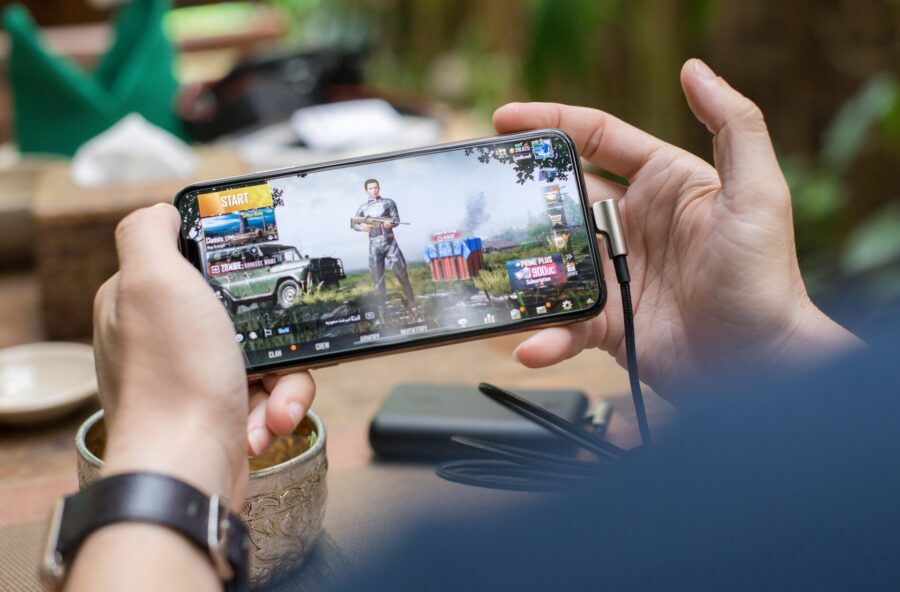Gamers, have you ever felt your heart pound like a bass drum solo before a ranked match, or your hands turn into puddles during an intense boss fight? You’re not alone. Gaming performance anxiety, the fear of underperforming under pressure in competitive or challenging situations, affects a significant portion of the gaming community.
While a pre-game jitters can be a natural part of the competitive spirit, excessive anxiety can hinder your enjoyment and performance. Let’s delve deeper into the causes of gaming performance anxiety and explore effective strategies to conquer it.
Why Do We Choke Under Pressure?
The root of gaming performance anxiety lies in our body’s primal fight-or-flight response. When faced with a perceived threat (like an important match), the body releases a surge of stress hormones like cortisol and adrenaline. This prepares us for immediate action, but in a gaming context, it can manifest as:
- Physical symptoms: Increased heart rate, sweating, trembling hands, muscle tension
- Mental symptoms: Negative self-talk, fear of failure, intense focus on mistakes, difficulty concentrating
Dr. Kevin Hutchinson, a sports psychologist, highlights the role of cognitive appraisals in anxiety. “Our perception of the situation plays a big role,” he explains. “If we view a competitive game as a test of our self-worth, the pressure to succeed intensifies anxiety.”
Furthermore, research suggests that perfectionism can be a significant contributor. A 2020 study published in the Journal of Sport and Exercise Psychology found that gamers with perfectionist tendencies experienced higher levels of performance anxiety.
From Lag to Level Up: Strategies to Slay Anxiety
The good news is that gaming performance anxiety is manageable. Here are some powerful strategies you can incorporate into your pre-game routine and in-game mindset:
- Preparation is Key: Just like any athlete, gamers can benefit from structured practice. Having a solid grasp of the game’s mechanics and strategies builds confidence and reduces the fear of the unknown.
- Reframe Your Focus: Shift your focus from the outcome (winning/losing) to the process (enjoying the challenge, improving your skills).
- Challenge Negative Self-Talk: Replace self-deprecating thoughts with positive affirmations. Remind yourself of your past achievements and focus on what you can control.
- Relaxation Techniques: Deep breathing exercises, progressive muscle relaxation, and meditation can effectively reduce physical symptoms of anxiety.
- Healthy Habits: Prioritize sleep, eat a balanced diet, and stay hydrated. Taking care of your physical well-being creates a strong foundation for mental resilience.
- Seek Support: Talk to friends, teammates, or even a therapist about your anxieties. Sharing your struggles can be a powerful way to gain perspective and support.
Remember: Everyone makes mistakes. Even the pros have bad games. Focus on learning from your experiences and enjoying the journey of improvement.
Beyond the Individual: Fostering a Supportive Community
Gaming communities have a vital role to play in reducing performance anxiety. Here’s how:
- Promote Positive Reinforcement: Celebrate individual growth and effort, not just victories.
- Normalize Anxiety: Openly discuss the challenges of performance anxiety and the importance of mental well-being.
- Create a Safe Space: Cultivate an environment where gamers feel comfortable expressing their anxieties without fear of judgment.
Related: What is the Main Cause of Gaming Addiction?
By working together, gamers and gaming communities can create a more supportive and anxiety-reducing environment, allowing everyone to experience the joy of gaming at its peak.
So, the next time you feel the pressure mounting, take a deep breath, employ these strategies, and remember – you’ve got this, gamer!




